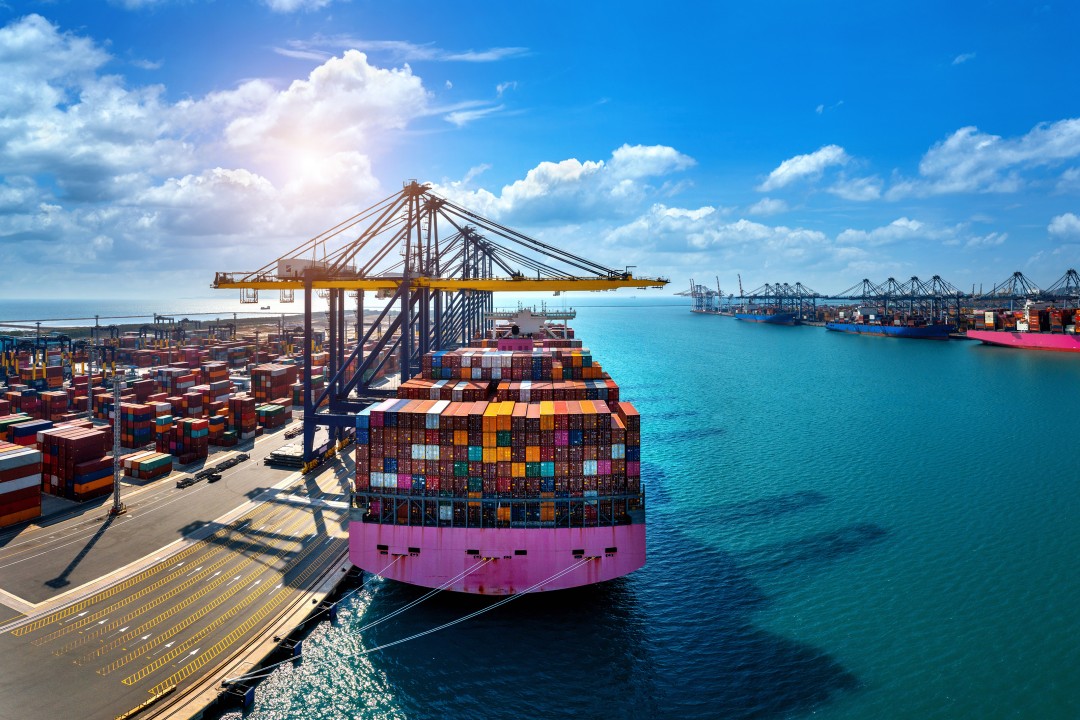Red Sea Crisis Escalates - Impact On Global Supply Chain And Economy
Amidst mounting tensions, the Red Sea crisis escalates, posing significant threats to global shipping and the economy. This article delves into the impact of Houthi militant activities on international trade routes and the wider geopolitical and economic ramifications.
Author:Rhyley CarneyReviewer:Paula M. GrahamJan 15, 202416.4K Shares245.2K Views

The Red Sea Crisis escalates, now in its 30th day, with tensions and concerns globally, signaling a potential resurgence of a global supply chain crisis. The crisis, triggered by the Houthi militants' aggressive targeting of cargo ships in the Red Sea, follows the outbreak of the Israel-Hamas war on October 7. This development has heightened the anxiety of economists and politicians about a possible broader Middle Eastern conflict.
Houthi Militancy Threatens Global Shipping
A critical artery for international trade, the Red Sea sees about 15% of the world's shipping traffic and 30% of its container traffic annually, including a significant portion of oil tankers and various cargo ships. The attacks by the Iran-backed Houthis have forced major shipping companies to reroute their vessels around the Cape of Good Hope, South Africa, leading to increased costs and delays.
"This has added significant cost, and also significant delays, to shipments that are coming from the Middle East, to and from Europe, and other regions in that area, that rely on the Suez Canal a great deal," Robert Handfield, a professor of operations and supply chain management at North Carolina State University, told FOX Business. The Suez Canal Authority chief Osama Rabie reported a dramatic 30% decrease in ship traffic compared to the previous year, emphasizing the severity of the impact on this vital shipping channel.
Economic And Political Ramifications
The crisis has caused a domino effect on global shipping and trade. Maersk, one of the largest container shipping companies, has halted operations in the Red Sea, citing the foreseeable risks. This decision, along with others by leading shipping firms, has significant implications for global trade and economic growth. According to UBS, the detour around Africa reduces the effective capacity of an Asia-Europe trip by about 25%.
Moreover, the repercussions of these disruptions are being felt in shipping costs. Freightos Terminal data shows a 173% increase in shipping rates from Asia to Northern Europe. Carriers are introducing surcharges that range from $500 to $2,700 per container, indicating the severity of the situation.
The crisis is further aggravated by environmental factors. Drought-like conditions in the Panama Canal have led to restrictions on the number of ships, exacerbating the global shipment backlog and compounding the pain from the Red Sea attacks.
The economic implications are profound. Economists warn of a resurgence in inflation and disruptions in the energy supply. The World Bank, in its recent statements, expressed concerns about higher interest rates, slower growth, and persistent inflation due to the crisis. The recent military response by the United States and the United Kingdom to the Houthi attacks has added another layer of complexity to the situation.
The prolonged conflict in the Red Sea and escalating tensions in the Middle East pose a significant threat to the global economy. They risk reigniting inflation, disrupting energy supplies, and stalling the global recovery process. As world leaders and economists monitor the situation, the potential for a widespread impact on global trade, energy supplies, and inflation rates remains a pressing concern.
Conclusion
The Red Sea crisis is a stark reminder of the vulnerabilities in our global supply chain and the interconnectedness of global economic systems. As the situation unfolds, it is clear that the ramifications will be far-reaching, potentially reshaping the economic landscape in the months to come.

Rhyley Carney
Author

Paula M. Graham
Reviewer
Latest Articles
Popular Articles